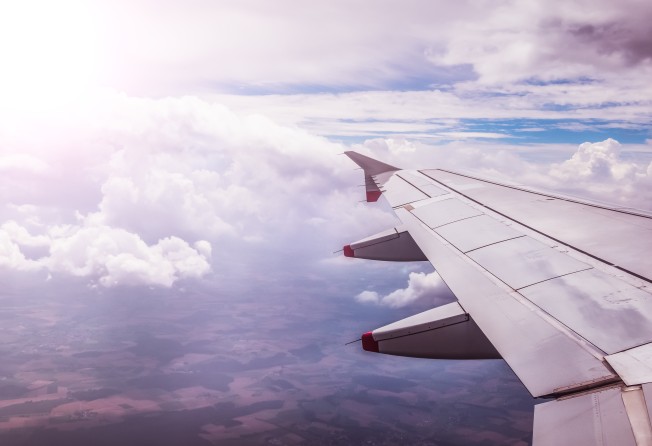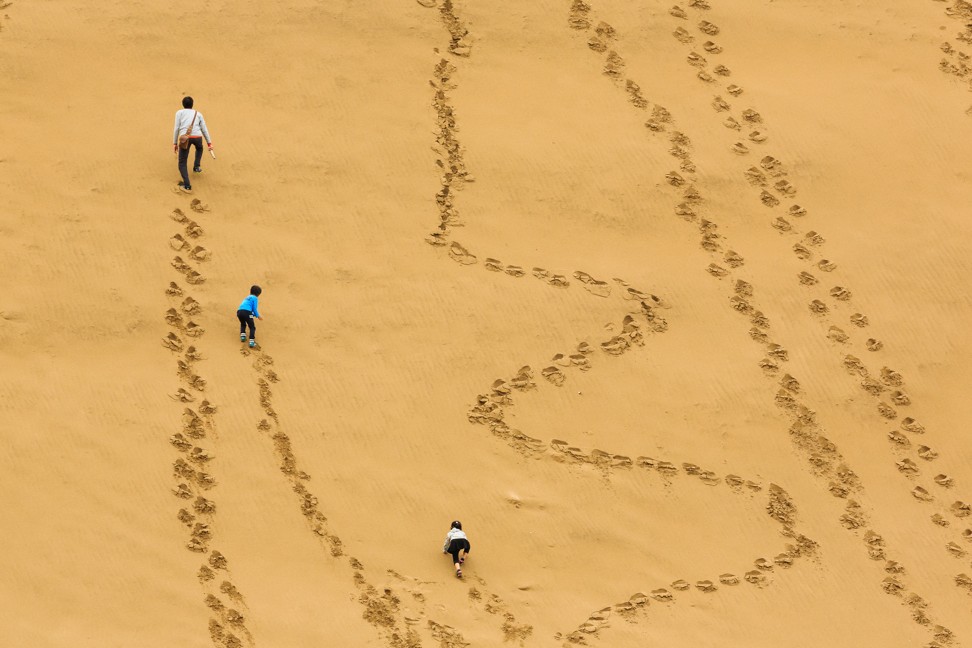Morning train to World Economic Forum in Davos.#wef pic.twitter.com/b5VdaYPfKR
— Greta Thunberg (@GretaThunberg) January 22, 2019
‘Flygskam’: what is ‘flight shame’ and should you be feeling it?
- In Sweden, people are swapping planes for trains as a sense of shame spreads among those concerned about climate change
- In China, air travel is expected to grow over the next 15 years, making the need for emission-light flights even more pressing

“Sustainable tourism” might sound like an oxymoron concocted to make woke travellers feel better about their excessive exploits, but the term carries increasing clout as every corner of the globe becomes accessible to a growing population of passport holders.
Unfortunately, the very act of getting to your holiday destination will be environmentally injurious, unless you walk or cycle to reach it, which, in today’s time-poor world, Destinations Known will assume you won’t – and flying is among the worst ways to go.
“Aviation’s emissions are growing fast,” says Justin Francis, chief executive of British activist travel company Responsible Travel, via email. This is particularly true in Asia, where a rising middle class is set on seeing the world. Last year, 15 of the 20 busiest airline routes in the world were within the Asia-Pacific region, according to flight data firm OAG. The hop from Kuala Lumpur to Singapore took first place, 30,187 flights having connected the two cities in 2018, followed closely by the journey from Hong Kong to Taipei, with 28,447 flights.
Not that this is anything to be proud of. On the contrary, flying is becoming a source of self-reproach, at least among the climate concerned. Take Swedish student activist Greta Thunberg, whose refusal to fly has been widely publicised. In January, she took a 32-hour train journey from Stockholm, in Sweden, to Davos, in Switzerland, where she roasted World Economic Forum delegates – there to discuss the environment – for jetting in on private aircraft.
She’s not alone in preferring overland transport. A recent survey conducted by WWF found that 23 per cent of Swedes were opting out of air travel to reduce their impact on the climate, and 18 per cent of those polled had chosen to take a train rather than fly. “Flygskam” (“flight shame”) has taken off on social media across Europe, as has the inversely correlated “tagskryt” (“train bragging”), and the phenomenon is making a difference on the ground. According to a recent Bloomberg report, Swedavia AB, which operates 10 Swedish airports, has seen year-on-year passenger numbers drop for seven consecutive months, while state train operator SJ moved a record 32 million people around the country last year.
China, on the other hand, has plans to build 200 new airports across the country by 2035. Aviation website Simple Flying reports that Chinese airlines will transport 720 million passengers next year, and, if things keep developing as they are, within 15 years, the world’s most populous nation will be responsible for a quarter of all air travel. And who can blame the Chinese for wanting to take to the skies?
Americans and Europeans have enjoyed decades of jet-setting since mass air travel became affordable in the late 1970s, when the Middle Kingdom was coming to terms with Mao Zedong’s death and the end of the Cultural Revolution. With overseas adventures not permitted before 1997, of course China’s newly mobile nationals would want to expand their horizons once the opportunity arose.
This doesn’t make flygskam any less relevant to the region, however. Putting pressure on airlines to become greener can only be a good thing. Scandinavian Airlines is implementing a number of measures, including upping its use of biofuel and replacing older planes with newer, more fuel-efficient models. But more can, and must, be done.
“We need to fly less until we can get electric planes in 20 to 30 years,” says Francis. If you can’t wait that long until your next getaway, he advises taking fewer short breaks and opting instead for longer holidays, or deciding on destinations that can be reached by train. Xiamen is just a few hours from Hong Kong by high-speed rail, for instance – how’s that for #tagskryt?
Stalls at Bangkok’s Chatuchak market damaged in blaze

A fire broke out at popular tourist attraction Chatuchak market, in the Thai capital, on June 2. The blaze, which was believed to have been ignited by a malfunctioning electrical transformer, broke out at around 9.30pm, according to a report in the Bangkok Post. Before firefighters were able to control the flames, 110 shops, covering 8,000 square metres, were damaged.
The Bangkok Metropolitan Administration will offer 10,000 baht (US$320) compensation to each stallholder affected by the fire and set up temporary tents from which they can sell their wares.
About 200,000 people visit the market’s 15,000 stalls every week, but there is no news yet on whether the market will open for business as usual this weekend.
Japan bans ‘sand graffiti’ at Tottori dunes

In Japan’s Tottori prefecture, striking sand dunes rise where the land meets the sea. Part of Sanin Kaigan National Park, the Tottori dunes attract thousands of visitors every month, and an increasing number of them have left their (albeit temporary) mark.
According to the Mainichi Shimbun, more than 200 cases of “sand graffiti” were recorded last year. In one instance, The Guardian newspaper reported, a couple from overseas was ordered to erase a 25-metre-long message that read, “Happy Birthday Natalie”.
Locals consider writing in the sand an eyesore that undermines the natural beauty of the area and foreign-language signs are being erected to ask tourists to refrain from vandalising the coastline.
As for Natalie, wherever she may be, her well-wishers may be sand vandals, but Destinations Known hopes she did indeed have a happy birthday.